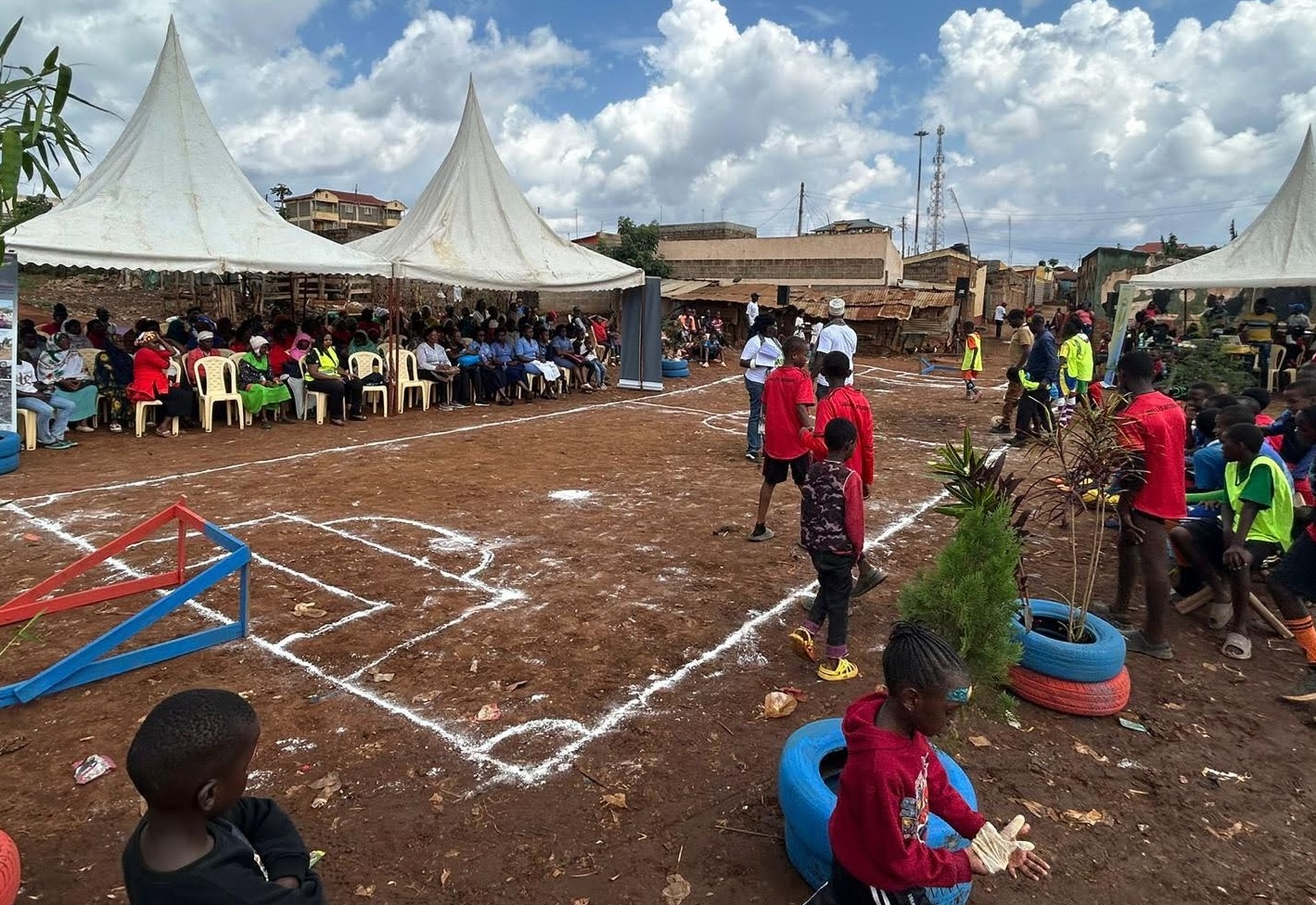The infrahub.africa database is a living archive showcasing human ingenuity, resilience, and innovation across the continent’s cities and towns. However, behind every case study is a dedicated researcher and passionate project teams. This is the first in our series "Faces behind the Cases", which examines the people who build this archive, the philosophies guiding them, and the relational work that makes this knowledge accessible.
-3.jpg)
A researcher shaped by the land
Dingha’s passion for his research area is deeply rooted and deeply personal. His entire academic career, from a Bachelor of Science to his PhD, has been focused on one subject: Geography and Planning. Specifically, his research has consistently centered on wetlands.
This focus is personal. Born in a rural village in Cameroon, Dingha lost his parents and primary guardians early in life. He survived through subsistence agriculture and hunting, developing a strong connection with the environment that sustained him.
His academic interest originated from direct experience. His aunt, one of his guardians, once took him to a vast rice field paddy to cultivate rice to feed the family. "That was my first time to see a very vast area with water almost everywhere," he recalls.

Image showing Dingha during undergraduate internship task of rice field paddy fertilisation In Ndop, Cameroon ©Dingha
Years later, during his final year undergraduate studies, a course on natural resource management included a unit on wetlands. "I was like, ‘[oh my], this is what I know about. I have been there, right?’". That course expanded his understanding, connecting his personal history to the important role these ecosystems play. This led him to study wetland transformation and degradation in urban centers like Bamenda, Cameroon - work that eventually connected him with the infrahub.africa project to fill its gap on nature-based infrastructure solutions.
Philosophy: The human faces behind the data
This personal history shapes Dingha's research philosophy. He is critical of development models that rely on metrics like GDP, which he argues hide the "human faces behind the data".
"Forget about the buzz words," he insists. "They talk about sustainability, transitions... it's one word only for me, that is: ‘inequality’".
For Dingha, the ultimate goal is not "growth" in the traditional sense, but that it is possible to have "prosperity without growth [at all costs]". The central question is whether a project enhances or diminishes local livelihoods and inequality. He uses the example of a large supermarket chain versus an informal market to illustrate his point.
This, he says, is the context for infrahub.africa. He sees the project as "a provocation for the African philosophy" - a philosophy defined by "collective action, collective benefit, that kind of inclusive and just approach to development".
It’s an idea that challenges the dominant growth narrative, one often measured in GDP or investment flows, and instead asks: who truly benefits?
In his view, prosperity in the African context should not be detached from community well-being or environmental balance. It’s not about scaling for scale’s sake, but about deepening impact in ways that preserve cultural identity, strengthen local enterprise, and sustain shared ecosystems. Through infrahub.africa, Dingha hopes to demonstrate that development can be both ambitious and humane, a model that reclaims the moral and social dimensions of progress.
The real methodology: Relational trust
How is this philosophy applied to research? For Dingha, his case research methodology requires trust and authentic engagement.
He explains that the main challenge of writing case studies is not the structural issues he has "normalized" operating from Cameroon that constantly interrupts his work such as unreliable internet or power and war. The substantial work is the administrative and emotional labor of building relationships to achieve deliverables. Even more so in his chosen field of nature-based solutions, given the inherent systemic complexity on this subject. This reality often clashes with the rigid, "Global North perspective" of predetermined contracts, strict number of research hours and timelines, because "African futures lie in ‘justice’, informality" and flexibility.
This trust based approach, what he calls "relational governance," achieves outcomes that formal processes cannot.
One of the most surprising and insightful aspects of developing case studies in this way, comes from the privileged access to non-public project materials entrusted by interviewees. These resources provide a unique in-depth perspective on how the initiatives are structured, funded, and implemented, revealing nuances, challenges, and reflections shared directly with the researcher. The trust developed demonstrates a research process that sees people as collaborators, not as subjects.
Voices from the field
The impact of this relational approach is evident in the feedback Dingha receives from the people he interviews. These testimonials show an appreciation for the work as a form of "creation care".
One case study proponent told him:
“Thank you for what you are doing. You are doing a wonderful job for future children. May God bless you. Keep up the good work, and I pray Your efforts will be rewarded one day.”
This message was also sent to him:
“Thank you, my dear brother in creation care for pursuing this objective so diligently. I really pray that this helps to focus more attention and persuade us on the need to ensure the preservation of green spaces in our drive for 'development.' Keep up the good work.”
Dingha's work shows that the infrahub.africa database is a product of listening, advocacy, and a focus on a future where development means enhancing livelihoods for the many, "alongside nature".











